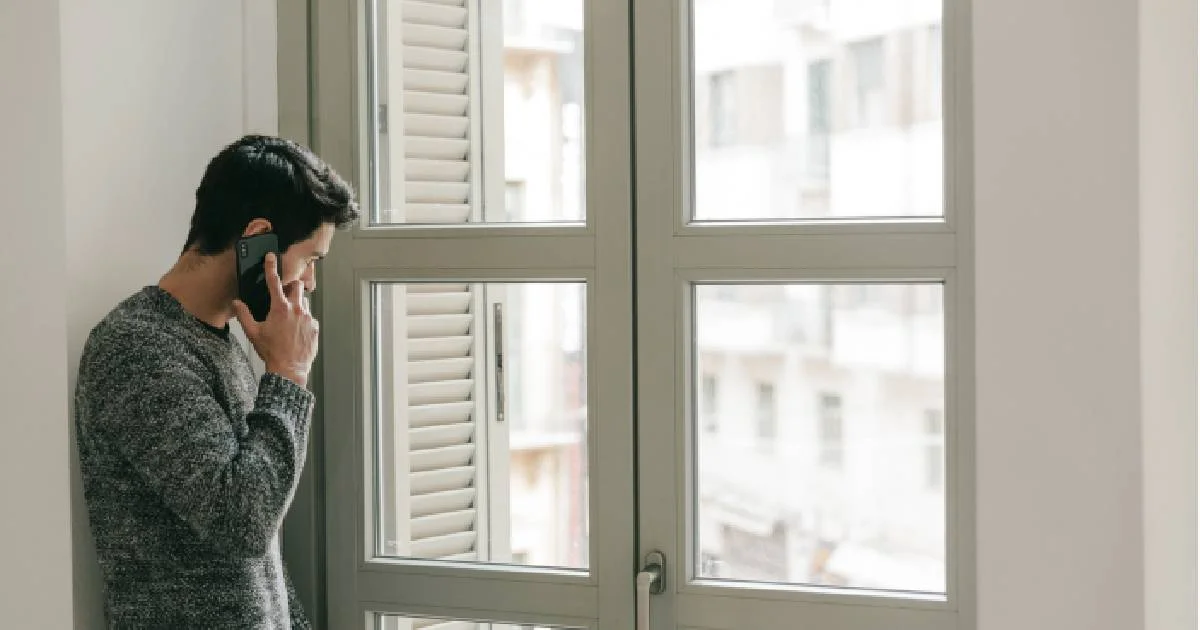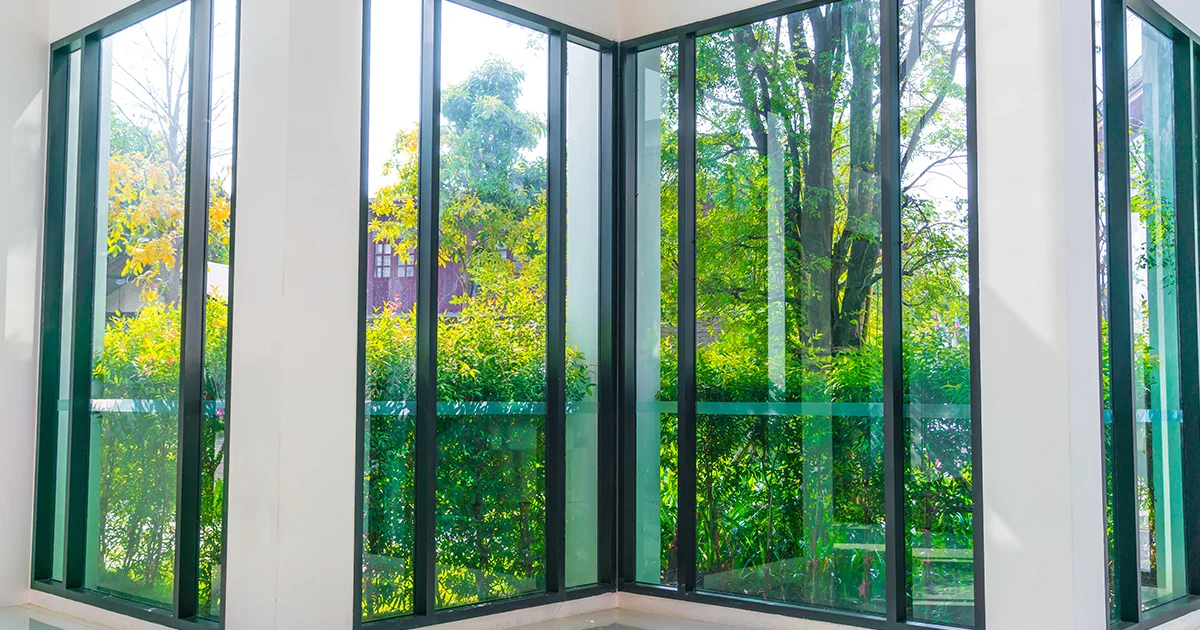
How to Choose the Right Window Tint for Your Home: Latest Trends and Options
03 Nov 2023, By AdminWhen it comes to home window tinting, there's more to it than just adding an extra layer of privacy and style to your living space. The latest trends and options in home window tinting offer a wide range of benefits, from improved energy efficiency to enhanced security and UV protection. In this blog, we'll explore the latest trends and options to help you choose the right window tint for your home.
Why Tint Your Home Windows?
Before diving into the latest trends and options, let's quickly touch on why home window tinting is a worthwhile investment. Tinting your windows offers numerous advantages:
- Privacy: Window tint can provide privacy by preventing outsiders from peering into your home.
- Energy Efficiency: Tinted windows can reduce heat gain in the summer and heat loss in the winter, leading to lower energy bills.
- UV Protection: Window tint blocks harmful UV rays, protecting your furniture and flooring from fading.
- Glare Reduction: Tinted windows can significantly reduce glare from the sun, making your living spaces more comfortable.
- Safety and Security: Some tints offer shatter resistance, adding a layer of security to your home.
Now, let's explore the latest trends and options in home window tinting.
1. Decorative Window Films
One of the newest trends in home window tinting is decorative window films. These films come in various patterns, textures, and colors, allowing you to add a touch of personality to your windows. Whether you prefer a frosted, stained glass, or custom design, decorative window films can transform your windows into a work of art. They are also a great choice for adding privacy without sacrificing style.
2. Smart Tinting Technology
As technology advances, so does window tinting. Smart tinting technology, also known as switchable or electrochromic glass, allows you to control the level of tint with the push of a button. This innovative option is perfect for those who want to balance natural light with privacy. Smart tinting technology can be integrated into your home's automation system, making it even more convenient.
3. Heat-Reflective Films
In regions with hot summers, heat-reflective window films have become increasingly popular. These films are designed to reduce solar heat gain, keeping your home cooler and more comfortable. By minimizing the need for excessive air conditioning, heat-reflective films can also help lower your energy bills.
4. Safety and Security Films
Security window films provide an added layer of protection for your home. These films are designed to make the glass more shatter-resistant, which can deter intruders and protect your family in case of accidents or extreme weather conditions. Additionally, security films are often combined with solar-control features, providing a dual benefit of safety and energy efficiency.
5. UV-Blocking Films
UV-blocking films are an essential choice for homeowners concerned about protecting their furniture and flooring from the harmful effects of ultraviolet rays. These films can block up to 99% of UV radiation while allowing visible light to pass through. This option is not only practical but also essential for preserving the longevity of your interior decor.
6. Choosing the Right Window Tint
Selecting the right window tint for your home involves considering your specific needs, climate, and personal preferences. Here are a few tips to help you make an informed decision:
- Consult with a professional: Reach out to a window tinting expert who can assess your needs and recommend the best options.
- Check local regulations: Some areas have regulations regarding the darkness of window tint. Ensure that your chosen tint complies with local laws.
- Consider long-term costs: While high-quality tints may have a higher upfront cost, they often provide better durability and energy efficiency, saving you money in the long run.
- Review warranties: Look for warranties on the products and installation to ensure you're covered in case of defects or issues.
In conclusion, home window tinting is a versatile and practical solution that offers a wide range of benefits. Whether you're looking for added privacy, energy efficiency, UV protection, or decorative options, there's a window tint that suits your needs. Keep up with the latest trends and consult with professionals to make the right choice for your home. With the right window tint, you can enhance the comfort, style, and security of your living space.

Top 6 Benefits of Car Wrapping You Should Know About
03 Nov 2023, By AdminAre you looking to give your car a fresh new look while also protecting its original paint? Look no further than car wrapping at Dr. Tint & Wrap! Car wrapping, a process where a vinyl film is applied to the exterior of a vehicle, has become a popular choice among car enthusiasts, businesses, and individuals alike. In this blog, we'll explore the top benefits of car wrapping and why it's worth considering for your own vehicle.
Style and Customization - One of the primary benefits of car wrapping is the ability to customize your vehicle's appearance to your liking. With a wide range of vinyl colors, finishes, and designs available, you can create a unique and personalized look for your car. Whether you're going for a sleek and glossy finish, a matte or satin look, or even a textured design, the possibilities are endless. Car wrapping allows you to express your personal style and make your car stand out from the crowd.
Paint Protection - Another significant advantage of car wrapping is its ability to protect your car's original paint from various types of damage. The vinyl film acts as a protective barrier against scratches, rock chips, dirt, and UV rays, helping to keep your car's paint in pristine condition. This is particularly beneficial for expensive or rare vehicles, as it helps preserve their resale value and keeps them looking new for longer.
Cost-Effective - Compared to traditional painting methods, car wrapping can be a more cost-effective option for changing your vehicle's appearance. A high-quality paint job can be expensive, especially if you're looking for unique colors or finishes. Car wrapping, on the other hand, offers a more affordable alternative with similar results. Additionally, if you decide to change your car's color or design in the future, you can easily remove the vinyl wrap without damaging the original paint, making it a cost-effective and reversible option.
Time-Saving - Unlike traditional painting, which can take several days to complete, car wrapping can be done relatively quickly. Depending on the complexity of the design and size of the vehicle, car wrapping can usually be completed within a few days to a week. This means less downtime for your vehicle and less inconvenience for you, making it a time-saving option for those who want a quick and efficient way to transform their car's appearance.
Advertising and Branding - Car wrapping is not only popular among car enthusiasts but also among businesses for advertising and branding purposes. Wrapping company vehicles with branded vinyl wraps can turn them into moving billboards, creating a cost-effective and attention-grabbing way to promote your business. With the ability to customize the design and incorporate your logo, colors, and other branding elements, car wrapping can help increase brand awareness and make your business stand out on the road.
Easy Maintenance - Another benefit of car wrapping is its low maintenance requirements. Vinyl wraps are durable and easy to clean, requiring minimal upkeep. Regular washing with mild soap and water is typical all that's needed to keep the wrap looking its best. Additionally, if any damage does occur, such as a scratch or small tear, individual sections of the vinyl can be easily replaced without having to redo the entire wrap, making it a convenient and cost-effective option for long-term maintenance.
In conclusion, car wrapping offers a wide range of benefits, including style customization, paint protection, cost-effectiveness, time-saving, advertising and branding opportunities, and easy maintenance. Whether you're looking to give your personal vehicle a fresh new look or promote your business on the road, car wrapping can be a practical and visually appealing solution. Consider car wrapping as a viable option for transforming your ride with style, protection, and added benefits that will make your vehicle stand out from the crowd.

Car Window Tinting: Is It Worth the Effort in Tauranga?
03 Nov 2023, By AdminWhen it comes to enhancing the overall look and functionality of your vehicle, car window tinting is an option that many Tauranga residents consider. Not only does it give your vehicle a sleek and stylish appearance, but it also offers several practical benefits. However, before diving into this automotive upgrade, it's essential to understand whether car window tinting is worth the effort in Tauranga. In this blog post, we will explore the advantages of car window tinting specific to Tauranga's climate and lifestyle.
1. Protection from Harsh UV Rays
Tauranga, known for its beautiful beaches and sunny weather, experiences intense ultraviolet (UV) radiation. Car window tinting provides a protective barrier against harmful UV rays, shielding both you and your vehicle's interior. By blocking a significant portion of UV rays, tinted windows can help prevent interior fading, cracking, and discolouration. Additionally, it protects your skin from UV exposure during those long drives around Tauranga.
2. Temperature Control and Comfort
Tauranga's climate can be quite hot and humid, especially during the summer months. Car window tinting helps regulate the interior temperature by reducing the amount of heat that enters the vehicle. This, in turn, eases the burden on your air conditioning system, making it more efficient and reducing fuel consumption. With cooler interiors, you can enjoy a more comfortable driving experience, even on scorching Tauranga days.
3. Glare Reduction for Safer Driving
Glare from the sun can be a significant hazard when driving, leading to eye strain and reduced visibility. Car window tinting reduces glare by filtering out excessive sunlight, ensuring clearer visibility of the road ahead. With improved vision, you can navigate Tauranga's roads with increased safety, particularly during sunrise and sunset when the glare is most intense.
4. Enhanced Privacy and Security
Privacy is an important aspect for many vehicle owners. Window tinting provides an additional layer of privacy, preventing prying eyes from seeing inside your car. This is especially beneficial when parking in busy areas or when you have valuable belongings in your vehicle. Additionally, tinted windows can deter theft by making it harder for potential burglars to identify valuable items inside your car.
5. Upholstery and Interior Preservation
Tauranga's sun and heat can take a toll on your vehicle's interior. Prolonged exposure to sunlight can cause fading and cracking of upholstery and dashboard materials. Car window tinting helps protect your vehicle's interior by blocking harmful UV rays and reducing heat buildup. By preserving the quality of your interior, window tinting can help maintain your car's resale value in the long run.
Considering the unique climate and lifestyle in Tauranga, car window tinting proves to be a worthwhile investment. The benefits it offers, including protection from UV rays, temperature control, glare reduction, enhanced privacy, and interior preservation, make it an appealing choice for vehicle owners in Tauranga. Whether you want to improve the aesthetics of your car

How to Choose the Right Window Tint for Your Home in 2023
03 Nov 2023, By AdminIn the world of home improvement, one often overlooked but highly beneficial upgrade is home window tinting. As we step into 2023, the demand for window tinting solutions has grown significantly, driven by increased awareness of their advantages. Whether you're looking to enhance privacy, reduce energy costs, or protect your furnishings from harmful UV rays, choosing the right window tint for your home is crucial. In this guide, we'll explore the key factors to consider when selecting the perfect window tint for your home in 2023.
1. Identify Your Goals
Before diving into the world of window tinting, it's essential to determine your specific goals. Why do you want window tinting for your home? Common reasons include:
- Privacy: Do you want to prevent prying eyes from peering into your living spaces?
- Energy Efficiency: Are you looking to reduce your energy bills by blocking out heat in the summer and retaining warmth in the winter?
- UV Protection: Do you want to safeguard your furniture, flooring, and artwork from harmful UV rays that can cause fading?
- Glare Reduction: Is glare from the sun or nearby buildings affecting your comfort while working or relaxing indoors?
Knowing your objectives will help you choose the right type of window tint to fulfill your needs.
2. Understand Different Types of Window Tints
In 2023, there are various types of window tints available, each with its unique features and benefits. Some of the most common options include:
- Solar Control Films: These tints are designed to reduce heat and glare, making your home more comfortable and energy-efficient. They can also block a significant portion of harmful UV rays.
- Privacy Films: These tints provide enhanced privacy during the day while allowing you to see out. They are perfect for homes with large windows or those in close proximity to neighbors.
- Decorative Films: If you want to add a touch of style to your windows, decorative films come in various patterns and designs. They can provide privacy and aesthetics simultaneously.
- Security Films: These films are designed to strengthen windows and make them more resistant to break-ins and accidents. They can be a valuable addition to your home's security system.
- UV-Blocking Films: If preserving the color and integrity of your furnishings is a priority, UV-blocking films are an excellent choice. They significantly reduce the harmful effects of UV rays on your interior decor.
3. Consider Local Regulations
Before you proceed with window tinting, it's crucial to check your local regulations and building codes. Some areas may have restrictions on the type or darkness of window tint allowed, especially for front-facing windows. Compliance with local laws ensures you avoid potential fines or complications.
4. Evaluate Tint Performance
When choosing a window tint, pay attention to its performance metrics, including:
- Visible Light Transmission (VLT): This measures the amount of visible light that can pass through the tint. A lower VLT means less light passes through, which can be helpful for glare reduction and privacy.
- Solar Heat Gain Coefficient (SHGC): This metric indicates how much heat the tint can block. Lower SHGC values are better for reducing heat gain during hot months.
- U-Factor: This measures how well the tint insulates your windows. A lower U-factor indicates better insulation, which is crucial for energy efficiency.
5. Seek Professional Installation
While some homeowners may attempt DIY window tinting, it's usually recommended to hire professionals. They have the expertise and equipment to ensure a proper installation that maximizes the benefits of your chosen tint.
6. Request Samples and Consultations
Before making your final decision, request samples of the window tints you're considering. This will allow you to see how they look in your home's lighting conditions and how well they meet your objectives. Additionally, consult with window tinting experts who can provide advice tailored to your specific needs.
In conclusion, home window tinting in 2023 is a versatile and practical solution for enhancing comfort, privacy, and energy efficiency in your home. By understanding your goals, exploring different types of tints, and considering local regulations, you can make an informed choice that brings both aesthetic and functional benefits to your living space. With professional installation and careful consideration, you'll enjoy the advantages of window tinting for years to come.
